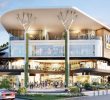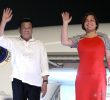When Davao Today sought the reactions of some members of the academe, they praised the efforts of the peace panels, at the same time, raised serious concerns.
By Davao Today
DAVAO CITY– How would the recently inked wealth-sharing agreement signed between the Moro Islamic Liberation Front (MILF) and the Philippine Government (GPH) solve poverty among the Moro people? With this signing, is peace for the Moro people near at hand?
Data from the National Statistical Coordination Board released last April showed the Autonomous Region in Muslim Mindanao (ARMM) having the highest poverty incidence of 46.9% in the country (national rate is at 22.3%). The numbers were even higher than in 2006 when the poverty incidence among families in ARMM was posted at 43%.
When Davao Today sought the reactions of some members of the academe, they praised the efforts of the peace panels, at the same time, raised serious concerns.
Fr. Jose Tabora, SJ, President of Ateneo de Davao University (ADDU), said he sees the agreement “as a sign of genuine will on both sides for peace. I pray that all concerned may rally around the prospect of peace and prosperity for Mindanao!”
For Mussolini Lidasan, an Iranun from Maguindanao and executive director of the Al Qalam Institute for Islamic Identities and Dialogue in Southeast Asia based in ADDU, “the big challenge is actually at the grassroots level where you deal with a much bigger population, clans with their own “turfing” or “kingdoms.”
Lidasan noted that the 220,000-hectare Liguasan Marsh in Central Mindanao has natural gas and oil deposits but has “at least 17 clans that control the Zone 4 and 5.”
“With the signing of the wealth sharing annex, for whose interest does it truly represent?” Lidasan asked.
He added, “these areas have natural gas and oil deposits (that are protected by the clans’) own private armies.”
Prof. Mae Fe Ancheta-Templa of the Educators’ Forum for Development said the signing of the wealth-sharing agreement “was not a guarantee in attaining peace. Unless the basic problems confronting the majority such as unfulfilled agrarian reform and intervention in control over natural and mineral resources are attended, the peace question remains.”
Lidasan noted that “peace talks has a tendency to discuss theories and concepts. But the reality in the grassroots communities has different scenarios.”
“When we talk about peace, it does not only refer to the vast resource utilization of the areas. We also have to factor in the socio-political aspect, or the identities and mindset of the Moro,” he said.
The peace panels between the government and the MILF signed July 14 the Joint Statement on Wealth Sharing and its annexes.
The agreement outlines the sharing of income from the “exploration, development and utilization” of natural resources in the Bangsamoro areas. The Bangsamoro and its local government units will receive 100% share from non-metallic minerals such as sand, gravel and quarry; 75% from metallic minerals, and 50% for “fossil fuels” (petroleum, natural gas, and coal) and uranium.
The Bangsamoro Framework Agreement was earlier signed on October 6 last year creating a new political entity called the Bangsamoro and allowing a transition from the ARMM to the Bangsamoro Transition Authority following the ratification of the Bangsamoro Basic Law and election by June 30, 2016. (davaotoday.com)
ARMM, Bangsamoro, Framework Agreement on the Bangsamoro, gph, Liberation Movements, milf, MILF GPH peactalks, wealth sharing









